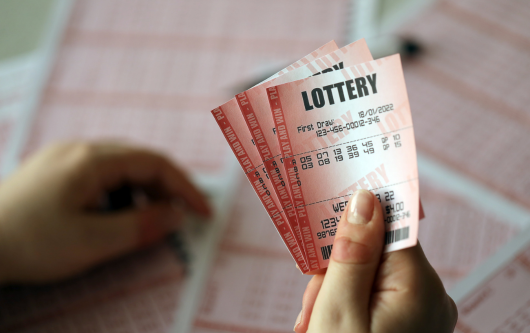Who gets the lottery winnings in a divorce? Lessons from a million dollar mistake
 Denise Rossi won $1.3 million in the lottery, sharing a 6.6 million dollar pot with her co-workers who had gone in on a ticket together. She filed for divorce from her husband 11 days later, ending a 25-year marriage. During the divorce process, Rossi attempted to keep her lottery winnings a secret – a decision that would come back to haunt her.
Denise Rossi won $1.3 million in the lottery, sharing a 6.6 million dollar pot with her co-workers who had gone in on a ticket together. She filed for divorce from her husband 11 days later, ending a 25-year marriage. During the divorce process, Rossi attempted to keep her lottery winnings a secret – a decision that would come back to haunt her.
When the case reached court, the judge found that Rossi had violated financial disclosure laws and acted with fraud or malice to hide assets. Her penalty? The courts awarded the entirety of her lottery winnings to her ex-husband.
Rossi’s case is a cautionary tale for why hiding assets during a divorce is a very bad idea. But it also raises the question of how lottery winnings are divided in divorce. Who gets the jackpot?
Lottery winnings are generally considered a marital asset, but timing matters
In New Jersey, lottery winnings acquired during the marriage usually fall under the definition of marital property. However, timing and the source of funds used to purchase the lottery ticket can play a critical role in making the final decision in deciding whether lottery winnings are subject to division.
Here’s how it typically works in New Jersey:
Winnings During the Marriage: If the ticket was purchased and won while the couple was married, the winnings are usually considered marital property. Courts will evaluate how to divide the winnings as part of the divorce.
Winnings After Filing for Divorce: If the ticket was purchased after either party filed for divorce, the winnings may be considered separate property. However, if it can be shown that marital funds were used to buy the ticket, the non-winning spouse could still have a claim.
Winnings Before the Marriage: Lottery winnings acquired before the marriage are generally considered separate property. But if the winnings were commingled with marital assets (e.g., deposited into a joint account), a portion could become subject to division.
As for how winnings are split in divorce, in New Jersey, division of marital assets is governed by the principle of equitable distribution. This doesn’t necessarily mean a 50/50 split. Instead, assets acquired during the marriage are divided in a manner deemed fair, based on several factors, including:
- The length of the marriage
- Each spouse’s income and financial contributions
- The economic circumstances of both parties
Can you divorce-proof your lottery winnings?
If you win the lottery and are concerned about protecting your winnings, here are some steps to consider:
Create a legal agreement with your spouse: Establishing a post-nuptial agreement (if you are currently married) or a prenuptial agreement (if you are about to get married) can be an effective tool for creating legally enforceable terms to keep the lottery winnings separate and free from asset division. In the event of a divorce, the terms found in a legally enforceable agreement would apply.
Don’t hide lottery assets: If a divorce occurs, disclose all assets, including winnings. Honesty is critical to avoid legal and financial penalties. In New Jersey, full disclosure of all assets, including lottery winnings, is mandatory. If a party is found to have hidden assets, courts can impose severe penalties, including awarding a larger share of the concealed funds to the other spouse, much like in Rossi’s case. Additionally, attempting to hide assets can damage one’s credibility in court, potentially affecting other aspects of the divorce, such as alimony or child support.
Work with a complex asset specialist in your divorce
Lottery winnings can complicate a divorce, particularly in New Jersey’s equitable distribution framework. If your divorce involves lottery winnings, consulting an experienced family law attorney is essential. A skilled attorney can help protect your interests and ensure compliance with New Jersey —helping you hit the jackpot of a fair resolution to your divorce.
If you are considering divorce or wish to explore a prenuptial or post-nuptial agreement, we can help. Schedule a consultation with one of our highly skilled family law attorneys and get answers to all your questions. Call us today at 888-888-0919, or please click the green link below.

